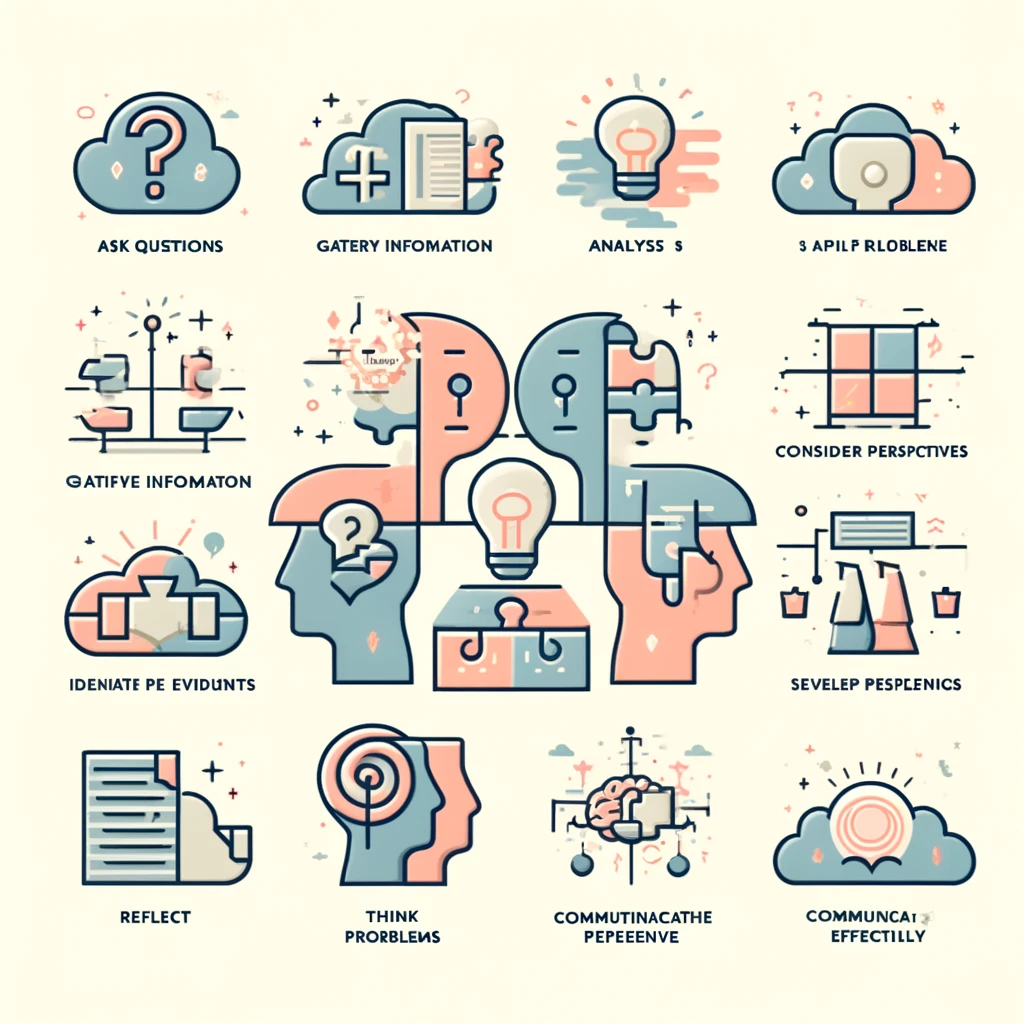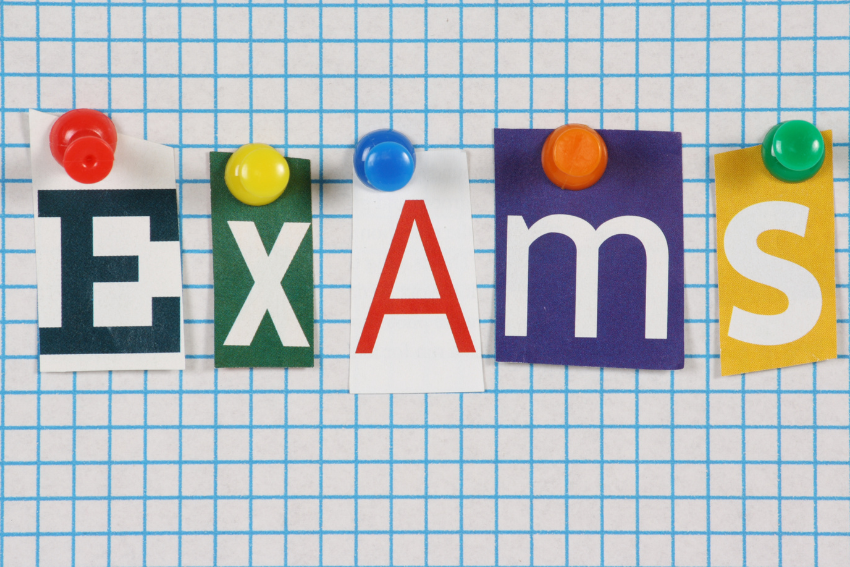
Critical thinking powers academic success. It helps students dig into information, weigh arguments, and tackle problems head-on. These skills aren’t just about memorizing facts; they drive deeper understanding and practical application. Students don’t just learn—they master. They analyze, they question, they connect ideas. By honing critical thinking, they boost their academic performance and fuel intellectual growth, setting themselves up for lasting success.
Understanding Critical Thinking Skills
Critical thinking requires questioning the information you receive. This involves exploring multiple perspectives. Students with strong critical thinking skills do not take information at face value. They carefully analyze evidence before drawing conclusions.
They consider a situation from multiple perspectives to gain a deeper understanding. This process helps them avoid jumping to conclusions. Students consider the context in which information is presented. They ask questions to uncover the truth. Developing these skills helps students make informed decisions and better understand the material they are learning.
Critical Thinking and Academic Performance
Academic performance sees a notable boost when students hone critical thinking. These skills cut through complex topics, helping students dive deep into understanding. Picture a Research Paper Writing: students with sharp critical thinking don’t just skim the surface—they dissect studies, pinpointing both strengths and weaknesses.
This knack for evaluation sharpens study habits and refines strategies. Come exam time, critical thinking kicks in, guiding students to analyze questions carefully, sidestepping common errors. They move beyond rote memorization, applying their knowledge in various contexts. This flexibility in thought isn’t just helpful—it’s essential. It’s what drives students to higher academic success, transforming how they learn and excel in every subject they tackle.
Critical Thinking in Academic Writing
Academic writing demands clear, well-reasoned arguments. Critical thinking drives this process. Without it, writing loses depth, clarity fades. Mistakes like weak evidence or ignoring counterarguments can cripple a paper. To sharpen their skills, students might turn to the experts of essay writing service UK EduBirdie. These professionals offer support with research, structure, and editing. This not only strengthens the paper but also fosters critical thinking.
As students refine their writing with expert guidance, they enhance their academic performance and intellectual growth. Critical thinking, combined with professional help, becomes a powerful tool. It’s a crucial element for success, pushing students to achieve excellence and expand their intellectual horizons.
The Role of Critical Thinking in Problem Solving
Problem solving is an important part of academic success. Critical thinking plays a key role in this process. Students face various difficulties in their studies. These can be complex assignments, research paper writing, or even time constraints. Critical thinking helps them approach these challenges logically and creatively.
To solve problems effectively, students should:
- Analyze the problem from different angles.
- Divide tasks into simpler steps.
- Search for creative solutions.
- Evaluate the possible consequences of their actions.
- Make informed decisions based on analysis.
This approach not only makes learning easier, but also develops important study skills needed for academic success and future careers.
How to Develop Critical Thinking Skills: 10 Simple Steps

Critical thinking is the ability to think clearly, rationally, and independently. It’s a skill that helps you solve problems, make informed decisions, and evaluate situations more effectively. But how do you develop it? Here are 10 straightforward steps to help you sharpen your critical thinking skills:
1. Question Everything
Don’t accept information blindly. Always ask yourself, “Why?” Dig deeper into the reasons behind your beliefs and decisions.
- Tip: The next time you read an article, ask yourself, “Is the evidence strong enough to support this claim?”
2. Look Beyond One Source
Broaden your horizons! Gather information from various perspectives to get a clearer, well-rounded understanding.
- Tip: Research a topic by checking out different articles, podcasts, or books – each source will give you new insights.
3. Evaluate the Evidence
Not all information is created equal. Be sure to check the reliability of what you read or hear.
- Tip: If someone cites statistics, dig into the source and how that data was gathered before accepting it as fact.
4. Listen to Understand, Not Respond
Active listening is key to critical thinking. Focus on fully understanding someone’s point of view before jumping to conclusions or responses.
- Tip: In your next conversation, resist the urge to interrupt or form your reply while the other person is still talking.
5. Take Time to Reflect
After gathering information, pause and reflect on it. Think about your own reasoning and whether your conclusions hold up under scrutiny.
- Tip: At the end of each day, reflect on decisions you made and what you could improve next time.
6. Break Problems into Bite-Sized Pieces
Big problems are less intimidating when you break them down. Tackle each part individually and watch how solutions come easier.
- Tip: When facing a major project or decision, list out smaller steps, and work through them one by one.
7. Consider Other Viewpoints
Challenge yourself by thinking about the opposing side of an argument. Understanding different perspectives will sharpen your ability to think critically.
- Tip: During a debate or discussion, take a moment to argue for the side you don’t personally agree with.
8. Apply Critical Thinking Daily
Incorporate critical thinking into your everyday decisions. It could be anything from choosing what to buy to planning your day.
- Tip: Before making a purchase, ask yourself: “Do I really need this? Is there a better alternative?”
9. Learn from Mistakes
Embrace your mistakes as learning opportunities. Critical thinkers see failure as a chance to grow and improve.
- Tip: After a mistake, reflect on what went wrong and how you can avoid it next time.
10. Engage in Mind-Challenging Activities
Stimulate your brain with puzzles, problem-solving games, or intellectual discussions. These activities can improve your critical thinking over time.
- Tip: Try playing games like chess or solving puzzles that push you to think strategically
Intellectual Growth through Critical Thinking
Intellectual growth thrives with critical thinking. Research reveals students with strong critical thinking skills boost their success rates by 20%. Engaging in critical analysis doesn’t just improve understanding; it transforms how students grasp subjects. This deep, thoughtful engagement pushes them to see beyond the surface, expanding their knowledge and shaping their academic achievements. They learn to recognize biases, question assumptions, and consider alternative points of view.
This intellectual growth extends beyond academic disciplines and shapes their overall view of the world. For example, in academic writing, students with strong critical thinking skills often produce more insightful and original work. They connect ideas across disciplines and present their arguments clearly and persuasively. This intellectual growth is a key factor in long-term academic success.
Developing Critical Thinking Skills
Developing critical thinking skills takes practice and dedication. Students can begin by:
- Questioning the information they encounter.
- Questioning the validity of arguments.
- Analyzing how evidence supports claims.
These activities deepen students’ understanding of the material. Discussing with peers and professors pushes critical thinking further. Through these conversations, they refine their arguments and explore alternative perspectives. Reading and critically analyzing academic texts adds another layer of skill. Over time, critical thinking weaves itself into their learning process. It’s not just a habit but a core strength that drives academic success. This blend of engagement and analysis fuels their growth and achievement.
Conclusion
Critical thinking drives academic success. It sharpens analysis, hones arguments, and refines problem-solving. These skills lift academic performance and spark intellectual growth. Students who cultivate critical thinking sharpen their study habits, master academic writing, and secure lasting success.
They learn to dissect complex ideas, challenge assumptions, and craft strong arguments. Ultimately, these abilities push them beyond mere academic achievement, leading to broader intellectual development and a deeper understanding of the world around them.
If you’re preparing for exams and need extra support, you can hire private tutors at Edumentors. Our experienced tutors are here to guide you through challenging subjects, strengthen your understanding, and boost your confidence. Whether you’re looking for help with GCSEs, A-Levels, or any other academic exams, our private tutors provide personalised, one-on-one tutoring tailored to your specific needs. Choose Edumentors and start achieving your academic goals with expert support.









